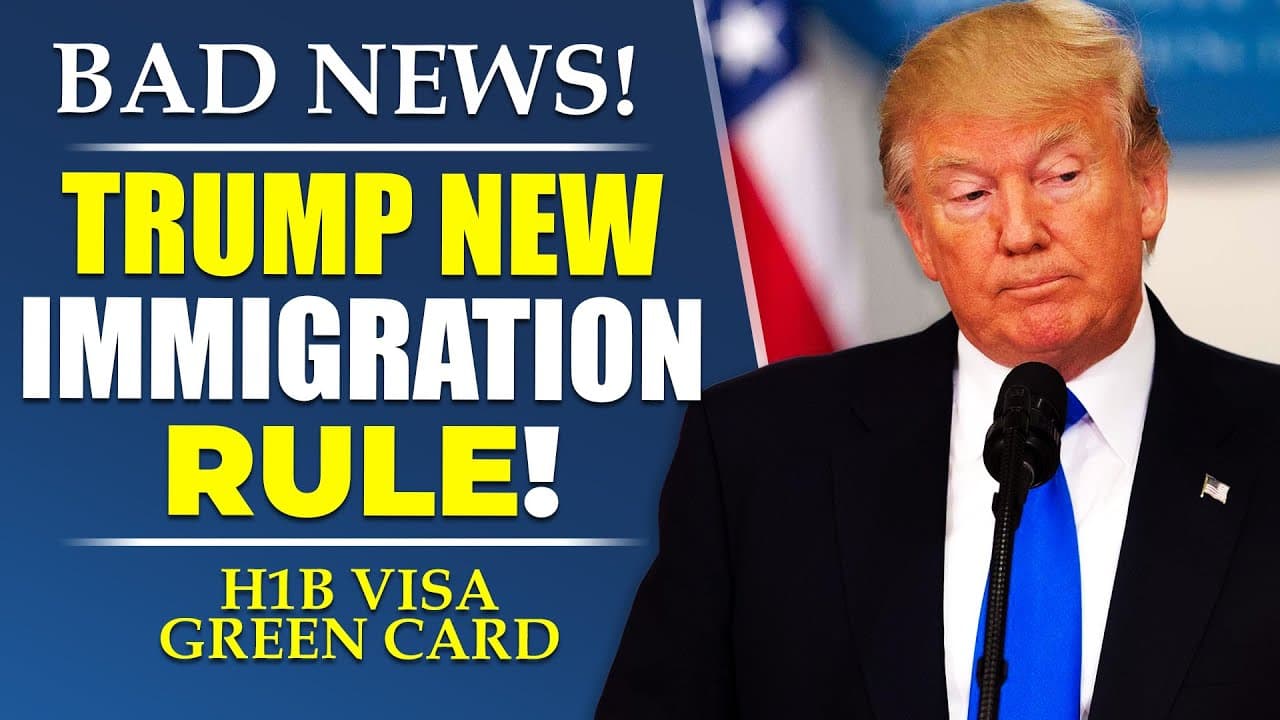Green Card Alert, USCIS Plans Limits Using Trump's Travel Ban
U.S. immigration authorities are reportedly preparing to apply provisions of the Trump era travel ban to tighten Green Card and immigrant visa rules for people from 12 designated countries, a move that would extend beyond temporary travel restrictions and touch lawful permanent residents. The proposed shift could affect millions of visa holders, visiting athletes for major events, Afghans on Special Immigrant Visas and persecuted minorities from Iran, creating legal uncertainty and measurable economic consequences.
Listen to Article
Click play to generate audio

U.S. Citizenship and Immigration Services is reportedly considering a reinterpretation of the Trump era travel ban to impose new limitations on immigrant visas and Green Card issuance for nationals of 12 countries that remain designated under the proclamation. According to reporting, the change would reach beyond short term travel restrictions and could complicate entry and status activation for individuals who currently possess valid visas or are lawful permanent residents.
The populations singled out for potential impact include holders of immigrant visas, long term lawful permanent residents of the United States, athletes expected to travel for the 2026 FIFA World Cup and the 2028 Los Angeles Olympics, Afghans who qualify for the Special Immigrant Visa program, U.S. government personnel with Special Immigrant Visas, and those granted immigrant visas as ethnic and religious minorities facing persecution in Iran. The proposal, as described in media accounts, would effectively place additional administrative hurdles on categories that historically received case by case exceptions.
The policy pivot would depart from how the travel ban has been implemented in recent years. The Supreme Court in 2018 upheld broad presidential authority for country specific restrictions, and administrations since have used proclamations and regulations to control entry. What makes the reported change politically charged and economically significant is its targeting of lawful permanent residents and visa holders whose movement and work are integral to U.S. institutions and events. Millions of lawful permanent residents live and work in the United States, and even temporary disruption to their status can have cascading effects on employers, government operations and major commercial events.
Major sporting events that rely on international competitors and support personnel could face logistical and financial risks. The 2026 World Cup will bring teams, coaches and associated staff to venues across North America, while the 2028 Olympics are expected to mobilize a wide network of foreign athletes, trainers and specialists. Restrictions that introduce uncertainty around travel permissions or the activation of immigrant status could raise costs for organizers, reduce participation and shift sponsorship and tourism revenue.
For Afghans and other vulnerable populations the stakes are sharply personal. Special Immigrant Visa holders often include interpreters, contractors and staff who worked alongside U.S. missions and military operations. Administrative constraints that delay or deny entry would complicate longstanding resettlement commitments and could prompt renewed legal challenges on grounds of due process and statutory obligations.
Economically, tighter admission practices affect labor supply in sectors that depend on immigrant labor, raise hiring costs for employers, and have the potential to slow economic activity tied to international events and travel. More broadly, the move would reinforce a trend of administrative reinterpretation of immigration policy, increasing legal uncertainty that businesses and foreign nationals must price into investment and relocation decisions.
Implementation would require formal rulemaking or agency guidance and almost certainly prompt litigation from affected individuals and advocacy organizations. For now, the reported plan highlights how legacy policy instruments can be repurposed to produce wide reaching consequences for migration, labor markets and international engagement at a time when the United States is preparing to host some of the world’s most visible sporting events.


